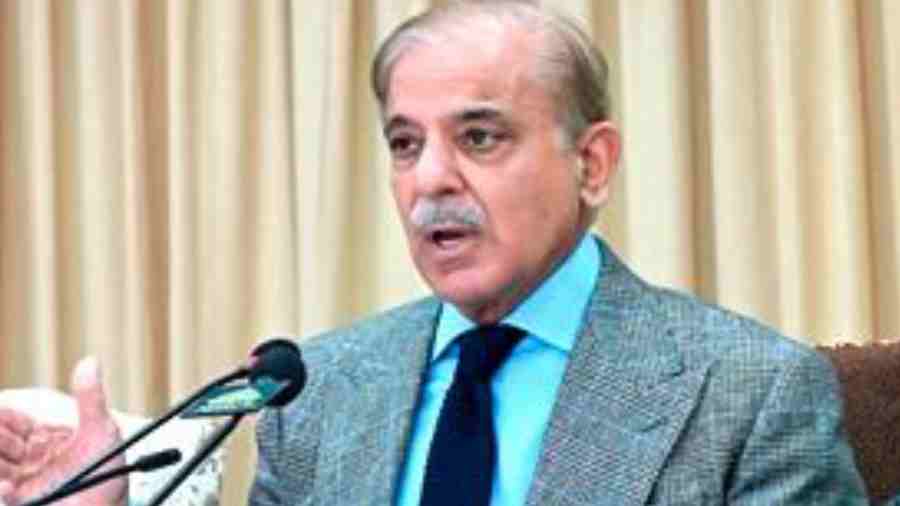Pakistan Prime Minister Shehbaz Sharif on Monday called for talks with India, hours before China lifted its technical hold on the United Nations Security Council’s sanctions on Lashkar-e-Toiba deputy chief Abdul Rahman Makki.
India welcomed the UN Security Council ISIL and Al Qaida Sanctions Committee’s decision to list Makki as a global terrorist. But the external affairs ministry, which has for the past several years insisted that talks and terror cannot go together, maintained a studied silence on Sharif’s remarks.
This was more so because of a subsequent clarification from Sharif’s office that negotiations with New Delhi were not possible without the reversal of India’s decision to dilute Article 370.
Sharif said in an interview with the Arabic news channel Al Arabiya, given during a visit to the UAE, that Pakistan had learnt “our lesson” after three wars with India and wanted to live in peace with the neighbour provided genuine problems were resolved.
“My message to the Indian leadership and Prime Minister Narendra Modi is that let’s sit down on the table and have serious and sincere talks to resolve our burning issues like Kashmir,” he said.
His spokesperson on Tuesday clarified: “However, the Prime Minister has repeatedly stated on record that talks can only take place after India has reversed its illegal action of August 5, 2019. Without India’s revocation of this step, negotiations are not possible. The settlement of the Kashmir dispute must be in accordance with the UN resolutions and aspirations of people of Jammu and Kashmir.”
Sharif had not spelt this out in his interview. Referring to Kashmir, the Prime Minister had spoken about “flagrant violations of human rights” and said India had “usurped whatever semblance of autonomy was given to the Kashmiris in their constitution: Article 370, they revoked that in August 2019…. I am not going into details but suffice it to say this must stop so that a message can go around the world that India is ready to have talks and we are more than ready.”
He also brought up the N-word, fully aware of the apprehensions in the West about the subcontinent being a potential nuclear flashpoint, in the apparent hope of western nations nudging India to the negotiating table.
“We are nuclear powers, armed to the teeth, and if, God forbid, a war breaks out, who will live to tell what happened?” Sharif said. India and Pakistan have not held formal negotiations since 2016. Islamabad unilaterally downgraded diplomatic relations in August 2019 in response to the changes in the status of Jammu and Kashmir.
Sharif said he had asked UAE President Mohammed bin Zayed Al Nahyan to use his good relations with both countries to bring them to the negotiating table. In Beijing, asked about China’s decision to support Makki’s sanctioning after putting a technical hold on it last year, Chinese foreign ministry spokesperson Wang Wenbin underlined that Makki had been convicted and sentenced by Pakistan. “This designation is a sign of recognition of Pakistan’s staunch fight against terrorism,” Wang said.
About China putting a technical hold on the listing of four other Pakistani terrorists, Wang said: “It also needs to be pointed out that the committee has clear guidelines regarding the designation of terrorist organisations and individuals and related procedures. China takes part in the work of the committee in a constructive and responsible manner in strict accordance with these rules and procedures.”











